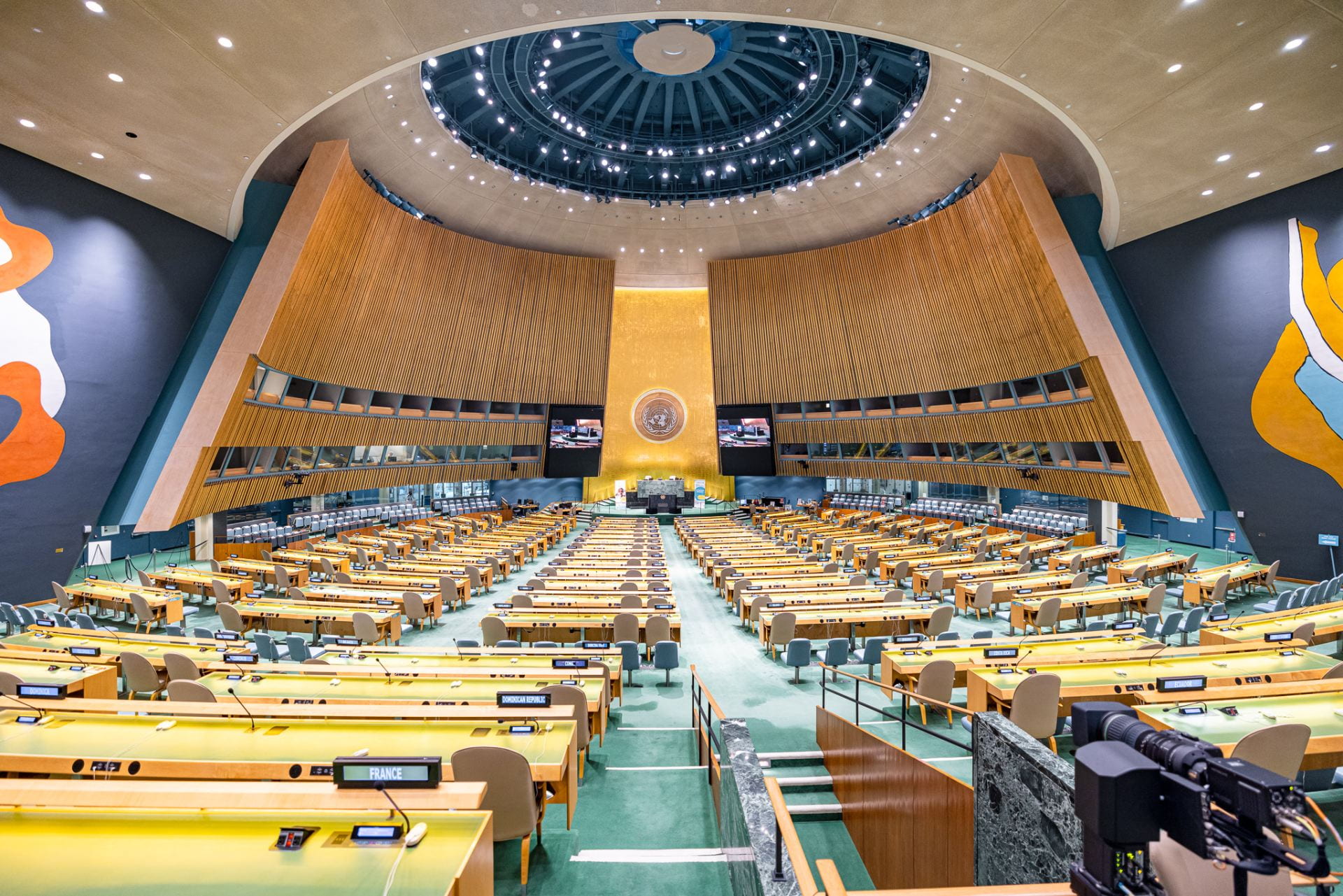
Name: Elias Markee-Ratner
Social Justice Group: 2023-2024, Climate Change: Rising Sea Levels / Plastic Pollution
Date of Fieldwork: January 12, 2024
Name of Organization and person (people) with whom you met and their title(s):United Nations (with our tour guide, Stephanie)
Type of Fieldwork: [69]
What I did and what I learned about my topic, activism, social justice work or civil and human rights work from this fieldwork?:
The United Nations is definitely an amazing place to visit: it’s crazy to know that just about every world leader we hear about in the news (as well as those who aren’t so often heard about) meet in this one place each year to make choices that affect our entire world.
When visiting, it was interesting to learn about just about every country takes place in this flawed but important system: whether it’s sending delegates to participate in the General Assembly or sitting on the Security Council, all countries have means of participating. However, what was alarming was the level of power given to certain countries and the Eurocentric perspective of the United Nations. For instance, while several seats on the Security Council rotate between countries, the United States, France, Russia, China, and the United Kingdom all get permanent seats and ‘veto power,’ giving any one of these mostly European countries the ability to stop any potential decisions.
Besides learning about the General Assembly and Security Council, I really enjoyed seeing the absolutely spectacular art pieces gifted to the United Nations by its member states. I especially loved seeing the Iranian rugs that depicted all of the United Nations’ secretary generals, as well as Thailand’s elaborate model of a canoe—beautiful! The international art and retro architecture were definitely among the highlights from the visit.
But while seeing art and the places where diplomacy happens were interesting and special, perhaps the most important part of the visit was seeing how the United Nations makes change. A common criticism of the United Nations (that has some truth) is that it’s ‘all talk and no action,’ so seeing how the United Nations helps out in critical situations by providing peacekeeping delegations, resources, and aid in dire scenarios helped me understand the value of having this global center for diplomacy. An example that relates to my topic of plastic pollution is how the United Nations partnered with Conceptos Plasticos, a Columbian organization, to reuse plastic in polluted communities in the Ivory Coast to build schools. They were able to crush the plastic into bricks, making a stable and long-lasting structure.
All in all, our visit to the United Nations was informative and eye-opening. Especially during this time of constant turmoil, seeing how countries are coming together was a timely and valuable experience.





